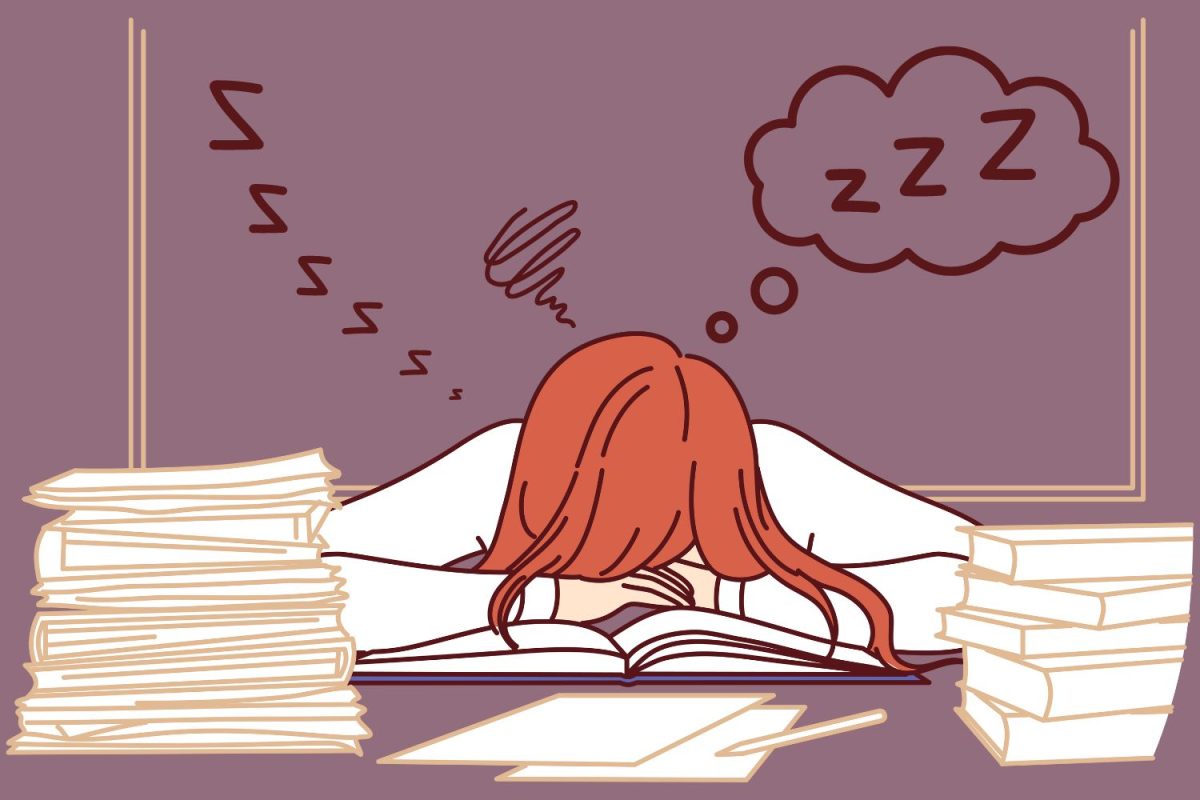Her face full of concentration, Claudia Costa (’16) carefully reads through her online horoscope for the day, her face full of curiosity and anticipation. Costa believes in astrology and reads her horoscope daily to get a sense of what her day will be like. As a Cancer, Costa feels that her zodiac sign reflects who she is as a person, and that the predictions given on her daily horoscope correspond truthfully to her life. “It affects my daily life, and the choices I make both socially and academically,” Costa said. She has been reading her horoscope daily since she was 13.
“I feel a strong connection to my zodiac sign,” Costa said. “My horoscope can even change my mood. Today I’m taking an Adanced Placement (AP) test and my horoscope said I would do well, so I felt more confident.”
Reading her horoscope can be a confidence boost, however if the horoscope’s predictions are less positive, this can lead to Costa feeling negative about the day before it even starts.
Fearing black cats, knocking on wood, good luck charms: these are all examples of superstitions. Superstitions, rituals, and horoscopes hold varying significances to different people. Some students believe that superstitions are nonsensical. But for others, superstitions, horoscopes, and rituals hold a special importance in their daily lives.
One type of superstition that is frequently practiced by many students is various athletic rituals. This is also very common in the world of professional sports, as many professional athletes have specific superstitions and rituals that they perform before games to calm themselves, get in the right mindset and bring good luck. For example, Tiger Woods only wears red shirts to his Sunday golf competitions and Michael Jordan always wore his college basketball shorts underneath his Chicago Bulls uniform.
Dexter Bohn’s (’16) superstitions are all centered around baseball. An avid player, Bohn uses these superstitions to bring himself “peace of mind” before a game. Bohn believes that his superstitions help him gain control when he is feeling anxious.
Bohn has certain “core” rituals that he maintains before every game, such as putting on a certain sock first and not talking to the opposing team before playing them, while other superstitions will arise randomly. If Bohn were to do something before getting a hit, he might add it into his rotation of superstitions.
“The pressure can be pretty overwhelming sometimes so I try to shift [my focus] onto things I can control, like which sock I put on first or putting tape on my wrist,” Bohn said.
Bohns superstitions are entirely reliant on how his performances are. His rituals act as a consistency in what is an otherwise ever-changing sport Bohn referred to his superstitions as a way to “control the uncontrollable,” and to prepare for the game that is about to happen. “In essence, my superstitions are all about making myself comfortable. I feel more confident and relaxed when I have only the game on my mind, and these superstitions help me focus on [the game],” Bohn said.
Bohn knows that he has no proof that his superstitions actually ‘work’, but he believes that they have helped his baseball performance overall. Without the consistency of his rituals, Bohn claims he would be “unable to concentrate on the game and [would be] all over the place.”
Studies published in Psychological Science Journals have proven that repeating certain rituals before sports matches help athletes gain a sense of control in an uncertain environment, hence helping their overall performance.
Sports are not the only circumstance in which students have developed superstitions and methods for getting in the zone.”
Jed Alberts (’16) has developed certain superstitions to help him with high-pressure academics. “I have a bunch of weird superstitions when it comes to testing,” Alberts said. “For example, I won’t take a test with a red pencil because I associate [the color] red with bad luck. Instead, I use blue, which I associate with good luck.”
Alberts owns three miniature Buddha statues that he carries around with him. “I always have at least one with me because when I bought them in China, I was told they would bring me good luck.”
So far, Alberts claims that the Buddha statues have been doing their job. “I’ve kept my green Buddha statue in my pocket during the SAT and AP exams, and I think I’ve been doing well. I’ve gotten to the point where I need them there,” Alberts said. The Buddha statues act as a good luck charm of sorts for Alberts, and bring him a sense of calm during testing.
Some students do not believe in superstitions themselves, but understand why
others may. “I don’t believe in superstitions because I believe in fate, and that everything happens for a reason,” said Grace Bake (’15).
Bake believes that superstitions have been existent in society for an extremely long time, explaining that “people have always feared a higher power or a God. Superstitions are an extension of this and allow people to take solace in the fact that they cannot control everything, as well as giving them an explanation when odd things happen.”







